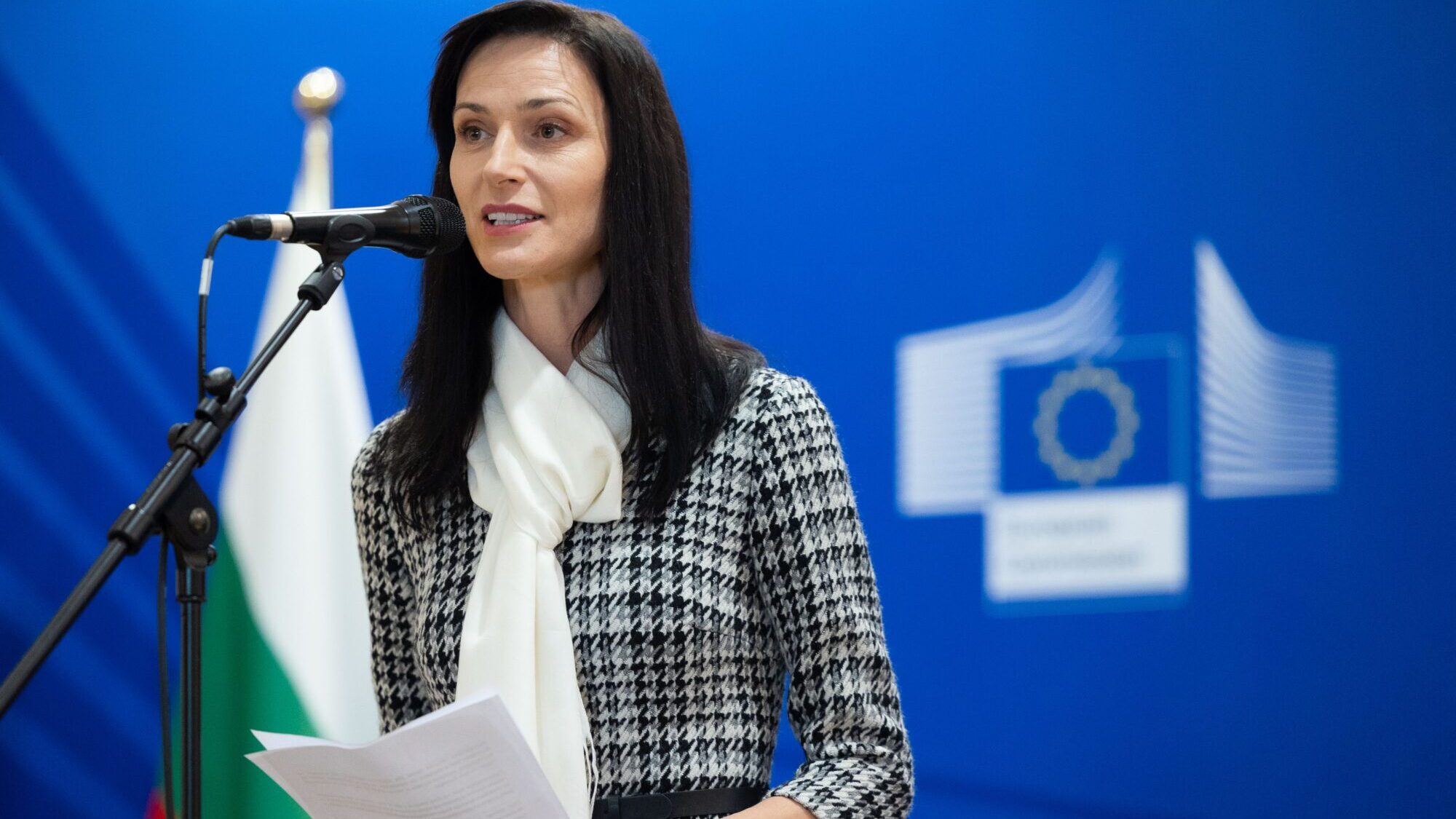
Mariya Gabriel.
Photo: Jennifer Jacquemart © European Union 2023.
Not unlike Slovakia’s turn to technocrats to run the country in the face of political instability, the winner in the latest Bulgarian elections has proposed a surprising off-ballot candidate for prime minister—EU Commissioner Mariya Gabriel.
GERB party leader Boïko Borissov announced his proposal for prime minister on May 10th.
The country has been tossed from snap election to snap election. The April 2nd election, in which Borissov’s centre-right party won 26.55% of the vote, while the second-place finisher, ‘Continuing the Change’-(PP), garnered 24.5%, was the fifth in two years.
Before presenting Gabriel’s name to Parliament, Borissov touted her as a candidate who would “put order in the chaos,” and be “absolutely for the right moment.”
He also praised Gabriel as able to “lead the economy, industry, modernization in the direction we expect,” push through justice reform, and successfully wrestle with the EU.
Bulgaria has only received a first payment of pandemic recovery funds for the EU, and its bid to join the EU’s passport-free Schengen is also still pending due to objections by other member states. The first payment of recovery funds was approved by the EU Commission at the end of 2022, but in January Parliament charged the then-government to renegotiate the terms of the funds to lower decarbonisation requirements in the energy sector. So, for some, having Gabriel at the helm might placate wrinkles in Eu-Bulgarian relations.
However, only Borissov’s party applauded when he revealed Gabriel’s identity.
Gabriel, a 43-year-old fluent French speaker, became an EU commissioner in 2017. She had spent the previous eight years as an MEP. After finishing her bachelor’s studies in French in her native country, she studied political science at the IEP Institute for Political Studies in Bordeaux, where she then also worked in research. In 2008, she launched her career in Bulgarian politics with the GERB party and EPP group. She is currently Innovation, Research, Culture, Education and Youth commissioner as well as first vice president for the EPP.
Borissov has made it clear that his first choice is to form a government with the second-ranking political party, ‘Continuing the Change (PP),’ but former reformist Prime Minister Kiril Petkov, who leads the party, appears ready to refuse Borissov’s offer of a coalition.
Borissov has also called on all the country’s parties to take responsibility for forming a government, warning of the consequences for the country should it have to go to elections again in August without a budget in place.
He said there would be “no dividing lines” in his party’s efforts to cobble together a government and offered 20 ministerial posts to other political parties ready to support a government led by Gabriel.
Borissov’s closest political ally is the Movement of Rights and Freedoms (DPS), but the two parties together are still short of a majority. The leader of the Russia-friendly Vazrazhdane party has, for the moment, also rejected the possibility of joining a government coalition.
Gabriel was in Sofia on Thursday, May 11th, the Bulgarian news agency Novinite reports. She held a press conference in a room of the country’s national assembly building along with the chairperson of the GERB-SDS parliamentary group, Desislava Atanasova, and called for a meeting of party leaders. Gabriel said:
We want a Bulgaria that clearly defends its place in the EU and NATO and a solution to the crises and torments of the Bulgarian citizens. I stand up with a sense of pride and modesty, you know me.
The keyword of today’s meetings is ‘dialogue between groups,’ in the short and medium term—’dialogue on priorities.’ To fulfil the priorities we need a working government.
Gabriel stated that she wants to build a vision called ‘Together for Team Bulgaria’ based on ambitions, authority, and commitment.
But some in the opposition questioned the seriousness of Thursday’s proposed meeting of political groups, as Kiril Petkov and Asen Vasilev, leader of the Vazrazhdane party, were both out of the country.
A poll done by Alpha Research on behalf of Bulgarian National Television and released on May 10th found that 56% of Bulgarians thought the parties in Parliament should form a regular cabinet with Gabriel as prime minister. Gabriel will need the approval of EU Commission President Ursula von der Leyen to leave her post in Brussels to take up that of prime minister of Bulgaria.
